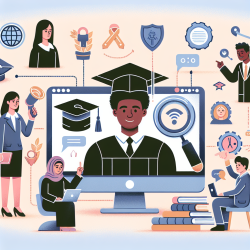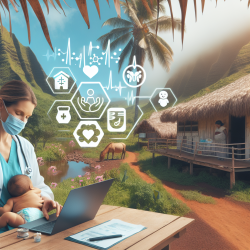As educational psychologists, you often find yourselves at the intersection of mental health and education, striving to provide the best possible support for students, particularly those in special education. One of the critical concerns that frequently arises in your line of work is ensuring the safety and well-being of these students, especially when it comes to implementing online therapy services. At TinyEYE, we understand these concerns and are committed to providing a secure, effective, and supportive environment for all students.
The Importance of Safety in Online Therapy
When the pandemic forced schools to shift to remote learning, the landscape of education changed dramatically. While this transition brought many challenges, it also opened new avenues for providing essential services like therapy. However, this shift also raised significant questions about safety. How can we ensure that online therapy sessions are as safe and effective as in-person sessions?
Secure Platforms and Data Privacy
One of the foremost concerns in online therapy is the security of the platforms used. At TinyEYE, we utilize state-of-the-art, encrypted platforms to ensure that all communications and data are secure. This means that student information is protected at all times, meeting and often exceeding the standards set by educational institutions and governing bodies.
- End-to-end encryption
- Regular security audits
- Compliance with GDPR and HIPAA
Training and Certification of Therapists
Another crucial aspect of safety in online therapy is the quality and preparedness of the therapists. All TinyEYE therapists are not only certified professionals but also receive specialized training in conducting online therapy sessions. This training includes:
- Understanding the unique needs of students in special education
- Implementing best practices for online therapy
- Maintaining a safe and supportive virtual environment
Parental and School Involvement
Safety in online therapy also extends to involving parents and school staff in the process. At TinyEYE, we encourage a collaborative approach where parents and educators are kept in the loop. This not only ensures transparency but also allows for a more holistic approach to the student's mental health and educational needs.
- Regular updates and reports to parents and educators
- Inclusion of parents in therapy sessions when appropriate
- Workshops and training for school staff
Monitoring and Feedback
Continuous monitoring and feedback are essential components of maintaining safety in online therapy. TinyEYE employs a robust system for tracking the progress of each student, which includes regular check-ins and feedback loops. This allows us to quickly identify and address any issues that may arise, ensuring that each student receives the best possible care.
- Regular progress reports
- Feedback from students, parents, and educators
- Adaptive therapy plans based on ongoing assessments
Conclusion
Ensuring the safety of students in special education is a multifaceted challenge, particularly in the realm of online therapy. However, with the right tools, training, and collaborative approach, it is possible to provide a secure and effective therapeutic environment. At TinyEYE, we are committed to these principles and continually strive to offer the highest standards of safety and care in our online therapy services.
By addressing concerns about platform security, therapist training, parental involvement, and continuous monitoring, we aim to alleviate the feeling of being lost that many educational psychologists may experience when navigating the world of online therapy. Together, we can create a safer, more supportive environment for all students.










